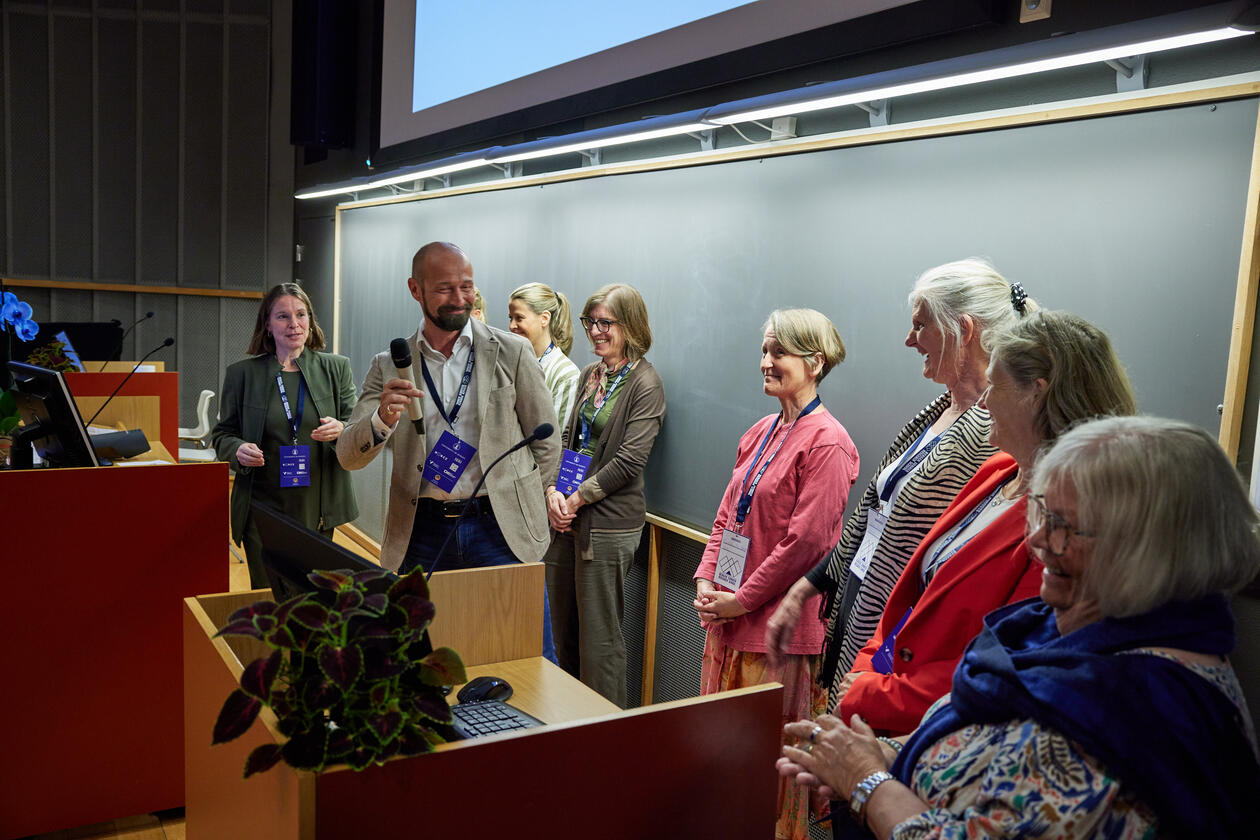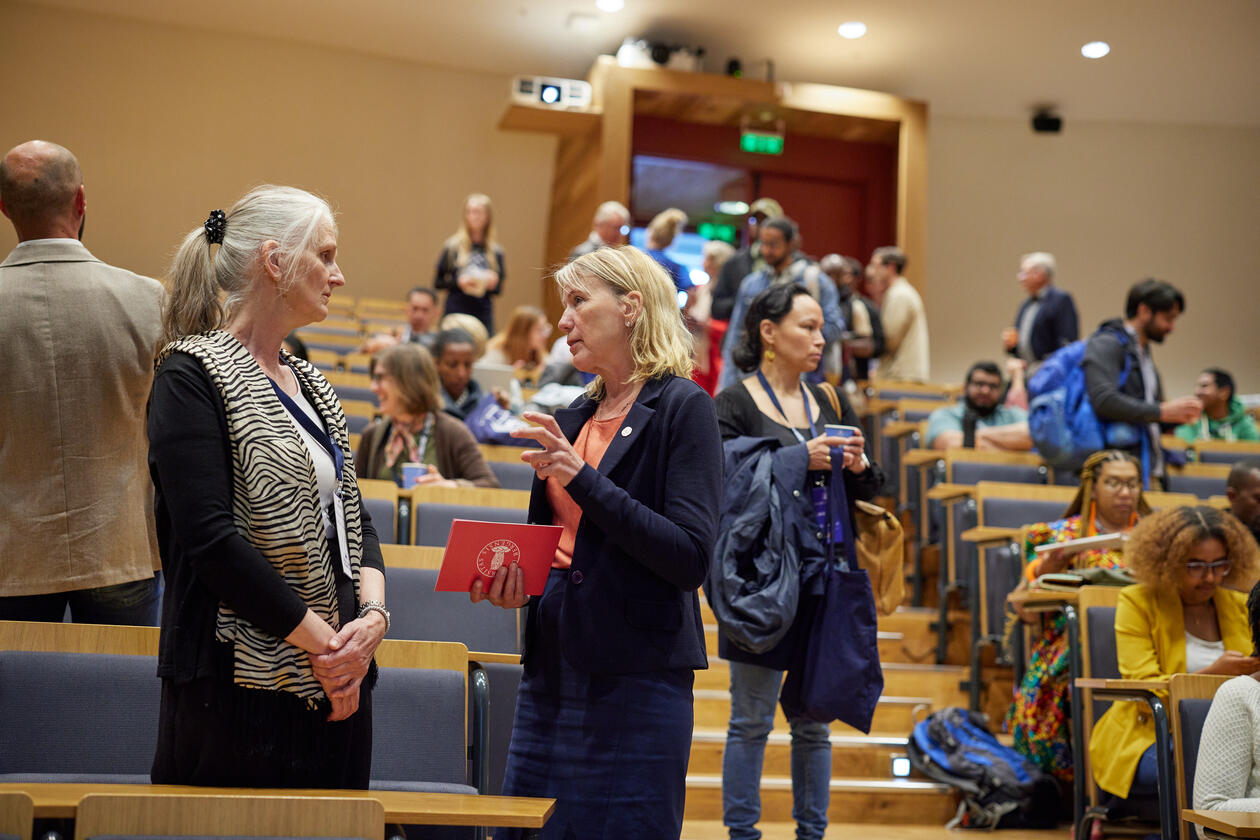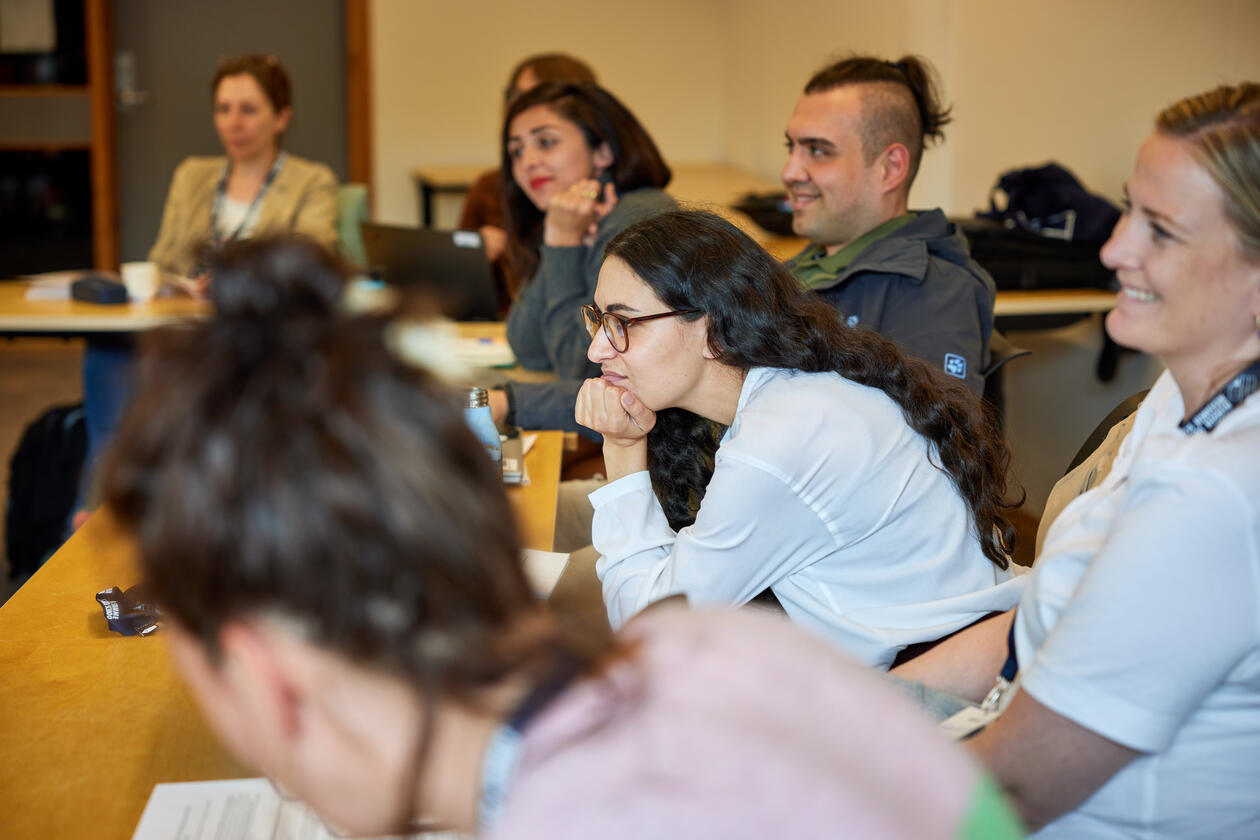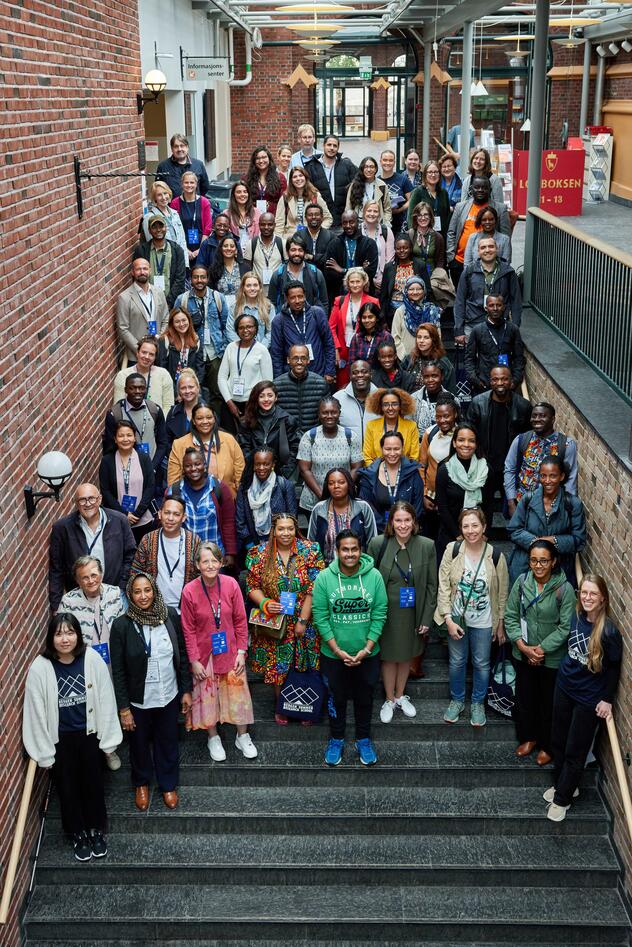A face-to-face summer research school, at last!
This week, more than 70 PhD students from all over the world assemble in Bergen for the annual Bergen Summer Research Schools—for the first time since the pandemic.

Main content
After three years of Covid-19 restrictions and digital summer schools, more than 70 PhD students from almost 30 different countries fill the quiet classrooms of a university getting ready for the summer holiday.
Over the next ten days they will get to know colleagues and experts in their fields they otherwise might not have met.
“I am so incredible happy that we can meet in person,” says Professor Ingunn Marie Stadskleiv Engebretsen, Scientific Director of Bergen Summer Research School 2023.
“It was very hard to do my work during the pandemic, with projects in many places in Africa, but it has been especially hard for young researchers early in their careers. They really need opportunities to meet colleagues from other parts of the world, to share ideas and find inspiration.”
Over the years, Bergen Summer Research School (BSRS) has fostered professional relationships that have led to both new research projects and publications.

“I hope these young researchers will leave Bergen with new, lifelong friendships and scholarly partnerships,” says Professor Engebretsen.
Childhood
The focus this year is childhood and how to provide nurturing care for the next generation. This is approached through five different courses, with themes ranging from migration, health, nutrition, caregiving, and education.
In 2015, the United Nations unanimously adopted the 2030 Agenda for Sustainable Development, with its goals, targets, and indicators—an ambitious pathway for transformation for “people, planet, and prosperity.
“Are we on track, with less than seven years to go? What is the status for children?” asks Professor Engebretsen.
“Although tremendous achievements have been made for child survival over the past decade, we are still off target when it comes to child health, wellbeing, and development. For some indicators, we are even losing sight of the goal.”
She points out that children’s health, wellbeing, and development are interconnected with women’s rights and health, caregiving, learning opportunities, nutrition, health systems and wider societal protection.
“Inter-sectorial and cross-disciplinary approaches are clearly needed. There is work to be done!” says Professor Engebretsen.

Problem-solving
As usual, for the past few years of this research school, the participants will not only dive deep in their own field, but also work together across the courses to tackle an urgent problem.
“We have teamed up with SOS Children's Villages who will give us wicked problems—problems that are difficult or impossible to solve because of their complex and interconnected nature. Throughout their stay, the participants will work together to come up with a policy brief that can help guide decision makers tackle these wicked problems.”
These joint sessions will equip the PhD students with methods that facilitate interdisciplinary collaboration with a strong focus on research impact. In this endeavour, they will be led by Professor Birgit Kopainsky of UiB’s System Dynamics Group and Ingunn Johanne Ness of the Centre for the Science of Learning & Technology (SLATE) at UiB.
“We will spend a lot of time together, probably mostly inside, but we will of also explore our city and what it has to offer, and of course, we will invite the participants to the Byfjellene—and even Vidden, for the more adventuresome,” says Professor Engebretsen.



